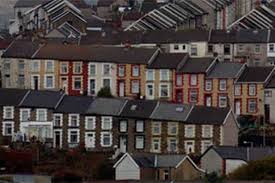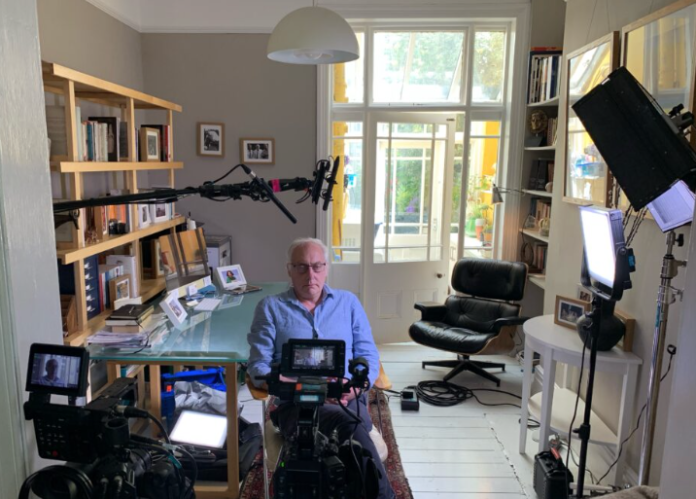- Return to sender - 20th February 2026
- Legal eagle - 19th February 2026
- Round Robin - 19th February 2026

During 23 years with the BBC, and a 41 year journalistic career (when he was trained to use clear and simple language, avoiding jargon), our Editor, Welshman Phil Parry, has always tried to monitor key events, and this is underlined by new research into one of the biggest of all – home insulation to combat climate change.
Things that appear SMALL can often be very BIG!
One example today is what is happening with home insulation, which has become a hot political issue.

This matters not only because of the wedge it appears to drive between government (the Welsh one trumpets its ‘achievements’) and opposition, but also because it is a major factor in combating climate change.
The UK has some of the oldest, worst-built and draughtiest housing stock in Europe.
One-in-four pounds spent on heating homes is lost through poor insulation.

After energy prices quadrupled three years ago as a result of Russia’s invasion of Ukraine there was a renewed imperative to fix them up, and the politics of it all put it centre stage (as well as revealing how little was being done).
As well as lowering bills, insulating homes is a necessary part of the commitment to achieve net-zero greenhouse-gas emissions by 2050.
Housing accounts for one-quarter of the UK’s energy consumption and one-seventh of emissions. For net zero, the carbon footprint of housing needs to fall by 40 per cent over the next 10 years.


That mostly entails replacing gas boilers with heat pumps powered by electricity. Fewer than two per cent of homes are warmed by a heat pump, compared with 21 per cent in France.
But fully insulating homes also plays a huge role.
The UK Conservative Government was distracted, and now Labour is working on a ‘Warm Homes Plan’, led by Miatta Fahnbulleh, junior minister for ‘energy consumers’ in the Department for Energy (DE). Her “lodestar”, she claims, is lowering household bills because the “crazy oscillation in prices has been hugely upsetting for families”.

But the problem is enormous – and requires more than politicians just declaring that they have a ‘lodestar’, or saying a situation is ‘crazy’.
The UK Government (of which Ms Fahnbulleh is a part) wants six million rented homes to meet a minimum energy-efficiency standard of Energy Performance Certificate (EPC) C (or its equivalent) by 2030.

This means that all new tenancies will have to meet this standard by 2028, but an estimated 3.7 million homes (2.5 million of them in the Private-Rented Sector [PRS]) will not make the grade.
Landlords will need to demonstrate that they have spent at least £15,000 on improving their property before they are given an exemption for a non-compliant building.
In Wales the problem is particularly bad, and new research emphasises this, although you wouldn’t know it from the way the Welsh Government (WG) behaves.

It seems they are extremely proud of their home-heating scheme ‘NEST’, although the figures tell the real story.
They proclaim on their website: “…improvements have included heating systems, insulation and solar panels to help lower energy bills and improve health and wellbeing.
 “When you contact us, our friendly advisors will offer free impartial advice to help you lower your energy bills and improve your health and wellbeing with:
“When you contact us, our friendly advisors will offer free impartial advice to help you lower your energy bills and improve your health and wellbeing with:
- the best energy and water tariff for your home
- benefits to boost your household income
- help to lower your carbon footprint
- advice on installing your own low carbon technology”

The reality is that these efforts are TINY. Let’s look for instance at their claim to have helped to insulate thousands of homes.
The latest estimates suggest that there were 109,000 households in Swansea alone as of June 2023, and more than 1.3 million households across Wales.
So there is an incredibly long way to go, and at this rate it will take DECADES!
But action is needed now to try and make our homes fit for the challenges ahead, when so much heat is lost through draughty houses.
Little things can have big effects, and the latest research shows how important this is…

The memories of Phil’s astonishing, decades long award-winning career in journalism (when he always tried to look at the latest political hot topic) as he was gripped by the rare neurological disabling condition Hereditary Spastic Paraplegia (HSP), have been released in the book ‘A Good Story’. Order it now.
Tomorrow – how during that career, for Phil proper sourcing was all-important but he came across many instances of plagiarism from students when he taught journalism, and this is all put centre stage now by research showing it is ever more prevalent today with new technology, as well as by the fact that Mark Carney has been accused of copying while at Oxford.









